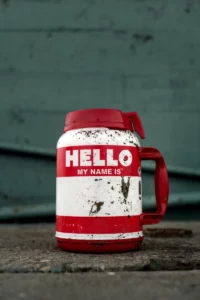You’re busy moving and shaking, trying your best to grow a fledgling business. Let’s say you own a corner convenience store in a busy area of Ardmore. It’s in the middle of February and temperatures are dipping below zero. There’s snow on the forecast for this weekend, and you don’t have anyone to plow your parking lot.
Gary, one of your neighbors, walks in to buy a sandwich and you guys get to talking. He tells you has a plow for his truck that he’s trying to sell. “Do you need one?” he asks. “Yes,” you reply, “that would save me the headache of shoveling by hand. “How’s $600 sound? I’ll come by Saturday.” he says. “Deal,” you reply. You both shake hands on the agreement and pay him on the spot. Saturday comes and Gary is nowhere to be found. You can’t plow your parking lot, which is now covered in a foot of snow. Patrons can’t visit your store. You lose money as a result. You want to hold Gary liable for his failure to sell you the plow.
Is the contract enforceable?
Most handshake deals are valid. But it’s a good practice to get important agreements in writing.
First, a Few Concepts
I’ve had many clients ask me if this type of deal is “legal.” Generally, in the United States we have the freedom to contract, although it is not an absolute freedom. Since the end of the Lochner era in 1937, (when the Supreme Court would commonly strike down economic regulations under the guise of the absolute freedom of contract) states are free to impose reasonable restrictions on the types of agreements that people can make.
So, barring any restrictions against handshake deals made by the Commonwealth of Pennsylvania, handshake deals generally are valid. However, instead of asking whether a handshake deal is legal, we should instead ask whether it is enforceable.
Is it a Contract?
In Pennsylvania, a contract is formed when three basic elements are satisfied: offer, acceptance, and consideration. And to be clear, the parties must have the legal capacity to enter into the contract (18+ and of sound mind), and the contract must have an objective that is legal (sorry, no mafia hits permitted).
Take a simpler example than you and Gary’s contract. You buy a t-shirt from a merchant. When you offer him the money, that constitutes an offer. He accepts your offer by taking your money. So far, so good?
Consideration is a legal concept roughly translating to “something of value in exchange for something of value.” You offer the $25, he offers the t-shirt. Both of you provide your own form of consideration, thus completing the contract.

In our plow case, you made an offer to buy Gary’s plow, thus satisfying the offer. It doesn’t matter that he invited you to make the offer; you made it on your own volition. After you offered, he accepted your offer. The consideration in this case is clear–you produce the money, he produces the plow.
So, we know that you formed a contract with Gary. Is it enforceable?
Is the Contract Enforceable?
The general rule in contract law is that contracts don’t need to be in writing and that oral agreements are enforceable. There’s a legal concept called the Statute of Frauds that helps define when we make exceptions to that rule. It was originally an English statute and has been adopted in every U.S. jurisdiction either through legislation or common law. Think of it as a guide on when it’s appropriate to write down contracts. Many of these concepts live on today in the Uniform Commercial Code, a version of which Pennsylvania has adopted.
First, let’s ask if the contract you made with Gary needed to be written down, or whether it was acceptable to make a handshake deal. According to Pennsylvania’s adoption of the Uniform Commercial Code, there are certain criteria defining when a contract must be in writing.

Let’s work through the analysis. The agreement to sell you the plow falls under the category of personal property, because the plow was Gary’s personal property. The rule in Pennsylvania requires a contract for personal property of an amount exceeding $5,000 to be memorialized in writing. In our case, Gary quoted you $600 for the plow. This falls well below the $5,000 threshold, and therefore, the contract did not need to be in writing to be enforceable.
You Want Justice
Okay, so we know you made a contract with Gary which was both valid and enforceable. Let’s say your convenience store lost revenue due to your reliance on Gary’s failure to deliver the plow as he promised. This failure is called a breach of contract, and Gary can be held liable. You feel cheated because you relied on Gary’s promise. He breached your contract and your business suffered. What now?
The typical remedy for contract claims is to award monetary damages. To do this, a few options are available. You can assert one of three distinct legal remedies: expectation interest, reliance interest, or restitutionary interest. In all of these remedies, you are asking Gary to compensate you for your loss of revenue due to his failure to complete the contract. An expectation interest asks the court to calculate money damages designed to put the aggrieved party where he would be if the other party had fully fulfilled the contract terms. For example, that would entitle you to receive the plow. You could also argue that your loss of revenue was correlated to Gary’s failure to perform, thus entitling you to compensation. Reliance interest is when a court calculates money damages designed to put the aggrieved party in a position he was before the contract was made. For example, you would get your $600 back. Once again, you could argue for lost revenue in damages.
Restitutionary interest is when a court calculates money damages designed to return the the aggrieved party the value of the benefit he conferred. In this case, this would not be applicable because nothing was conferred to Gary except your consideration.
Conclusion
Not only is your handshake deal “legal,” but it’s also valid and enforceable. We learned that contracts require (1) an offer, (2) acceptance, and (3) consideration to be valid. Also, we learned that contracts involving the sale of personal property under less than $5,000 do not have to be written down to be enforceable.
While you’re free to make handshake deals in most situations, it’s best to get things in writing. And if you need help with a contract of your own, please contact us.






